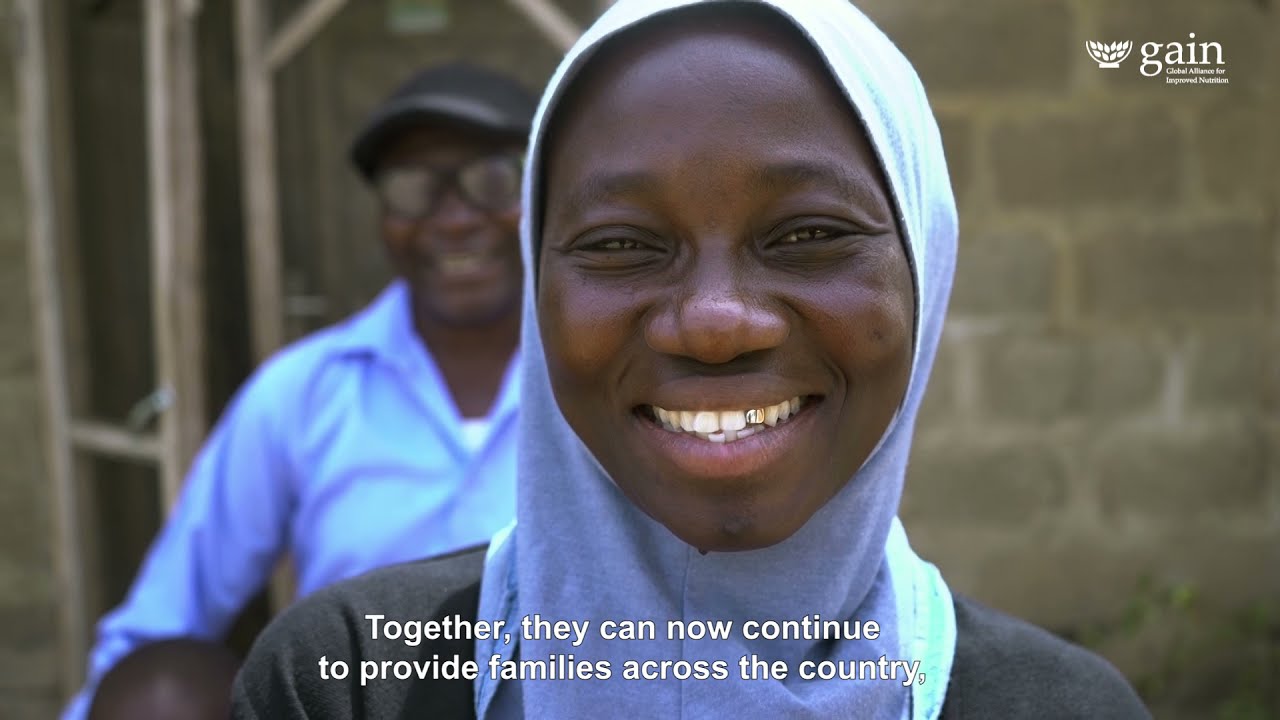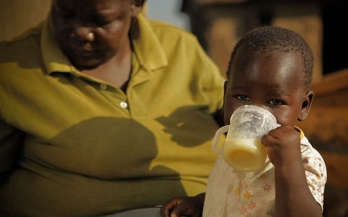

To weather current and future crisis, resilience of nutritious food Small- and Medium-Sized Enterprises (SMEs) must be increased. To do so, we seek to thoroughly understand the constraints SMEs face, provide them with liquidity support, strengthen their digital capacity and share knowledge and best practices.
GAIN’s footprint in this workstream
- Render SMEs better equipped to cope with the financial and management implications of COVID19
- Strengthen SMEs digital capacity through training
- Provide key stakeholders with a knowledge centre that brings together a set of relevant resources
Description of the workstream
COVID-19 has revealed many vulnerabilities in global and local food systems. And SMEs that play critical role within the food systems, had been hard-hit particularly in Sub-Saharan Africa and South East Asia.
To respond to the immediate needs in poor and fragile settings, our focus is to contain and assess the damage affecting nutritious food SMEs in our network. We seek to identify their current financial situation and consolidate and use this data to generate options for national support mechanisms. We provide direct financial support through small grants to enable SMEs critical for the supply of nutritious and safe foods to weather the COVID-19 crisis financially, and further build and sustain resilience of nutritious food SMEs through digital and mobile training on business resilience (including on management, logistics, marketing, distribution and digitisation) with country specific guidance developed and disseminated on how to access short-term liquidity support where this exists. To support SMEs in building back stronger, we offer technical assistance and build a knowledge centre to provide SMEs with the tools and information to withstand continued market uncertainty and be positioned for stronger post-COVID trade. All training and support will be designed with the diverse needs of both male and female entrepreneurs who may face increased burdens of care work amid COVID-19 related school closures.
SMEs produce, transport, process, and market most of the food consumed in Africa. COVID-19 is a health crisis, and it may well lead to an economic crisis. We can’t let it create a nutrition crisis as well.
A case in point is in In Nigeria and Kenya where we will train businesses on how to Digitalize their businesses as this will ensure business continuity in the face of lockdown and ensure that women can continue to earn an income within the home environment whilst tending to domestic duties.
Now more than ever it’s important to support Africa’s food-producing SMEs to weather the COVID-19 situation. Working together, we can support SMEs to not only endure the crisis, but to come back stronger after it’s over
We recognise that SMEs are critical actors in ensuring access to food and nutrition security worldwide, particularly for the poorest consumers, and should be championed and supported. In such dire straits, SMEs need to think about innovation, which is in itself disruption, while being concerned about disruption in their own current model. The COVID-19 pandemic has highlighted the degree to which this is needed and the urgency with which it must happen. And we will help them in this journey.
Call to action
SME owners and employees have been working diligently and innovating to adapt to a new reality without ceasing to provide consumers with safe, nutritious foods. We need to continue to support them, to ensure they can continue to deliver on that crucial role.
Facts and figures
- In China, in February of this year, 14% of surveyed SMEs had cash flow sufficient for only 1 month, and 50% had only enough for 3 months.
- In sub-Saharan Africa, small and medium-sized producers grow 55% of all fruits and vegetables
- 17 countries in Africa and Asia, indicated that 94% of SMEs survey were impacted by COVID 19.81% and 64% of these companies urgently need financial and technical assistance support.
Geographic coverage
Resources
Videos

Links
- Impacts of COVID-19 on Small- and Medium-Sized Enterprises in the Food System
- Thoughts on strategic bailout of SMEs in Bangladesh
- The role of MSMEs in food systems: now more critical than ever
- Impact of COVID-19 on Nigeria's Food Systems situation report – Edition II
- Impact of COVID-19 on Kenya's Food Systems situation report – Edition II
- World Bank’s Response to COVID-19 (Coronavirus) in Africa
- FAO - Novel Coronavirus


